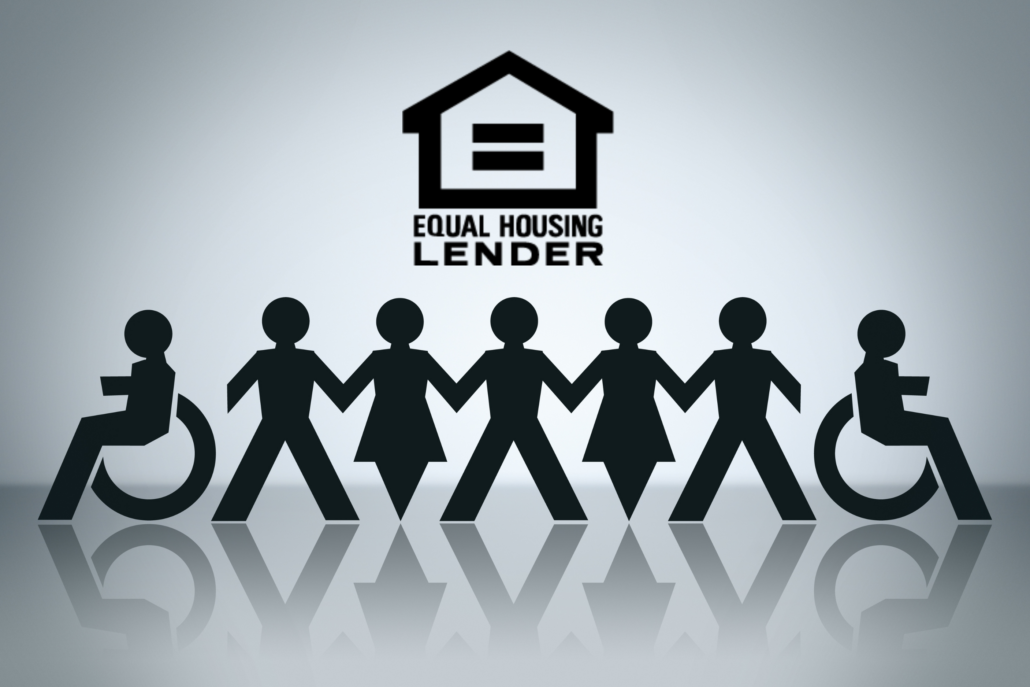April is National Fair Housing Month
National Fair Housing month is a time to reflect on the importance of fair housing and fair lending practices in the real estate and mortgage industries. Fair lending laws exist to ensure that all borrowers, regardless of their race, ethnicity, gender, religion, or other protected status, have equal access to credit and are treated fairly throughout the lending process.
April is National Fair Housing month in the United States because it marks the anniversary of the passage of the Fair Housing Act, which was signed into law by President Lyndon B. Johnson on April 11, 1968. This signing occurred one week after the assassination of Dr. Martin Luther King, Jr.
National Fair Housing month serves as a reminder of the ongoing importance of fair housing practices. This month-long event is an opportunity to reflect on the progress that has been made in promoting fair housing since the passage of the Fair Housing Act, as well as to recognize the work that still needs to be done to eliminate discrimination in housing.
Fair Housing and Fair Lending Laws
The Fair Housing Act prohibits discrimination in housing based on race, color, national origin, religion, sex, familial status, or disability. This law applies to a wide range of housing-related activities, including renting, buying, and financing, and it makes it illegal for landlords, real estate agents, mortgage lenders, and others to discriminate against individuals or families based on their protected status. The Fair Housing Act also created the Fair Housing Administration to enforce the law and investigate complaints of discrimination.
In addition to the Fair Housing Act, there are other fair lending laws: The Equal Credit Opportunity Act, The Community Reinvestment Act, and the Home Mortgage Disclosure Act.
The Equal Credit Opportunity Act (ECOA) was passed in 1974 to prohibit discrimination in lending based on race, color, religion, national origin, sex, marital status, age, or receipt of public assistance. The law applies to all forms of credit, including credit cards, mortgages, and car loans, and it requires lenders to evaluate borrowers based solely on their creditworthiness and ability to repay, rather than on any personal characteristics or demographics. ECOA also gives consumers the right to receive clear and accurate information about the terms of their loan and to file a complaint if they believe they have been discriminated against in the lending process.
The Home Mortgage Disclosure Act (HMDA) requires certain lenders to report information about their mortgage lending activities to the government. The law was passed in 1975 to help promote transparency and prevent discriminatory lending practices in the housing market. Under HMDA, lenders are required to collect and report data about the race, ethnicity, gender, and income of mortgage applicants, as well as information about the loan amount, interest rate, and other terms of the loan. This data is used by regulators and policymakers to monitor lending practices and ensure that all borrowers have equal access to credit.
The Community Reinvestment Act (CRA) was passed in 1977 to encourage banks and other financial institutions to invest in the communities they serve. The law requires banks to meet the credit needs of their entire community, including low- and moderate-income neighborhoods, and to demonstrate that they are making efforts to provide access to credit and financial services to underserved populations. CRA also requires banks to be evaluated on their performance in meeting the credit needs of their communities, and these evaluations are considered when banks apply for regulatory approvals or mergers.
These laws have been instrumental in promoting equal access to credit and preventing discriminatory lending practices in the United States.
The Impact of Fair Lending Laws
Fair lending laws have had a significant impact on the mortgage industry, particularly in terms of reducing discriminatory practices that historically limited access to credit for certain groups. Lenders are now required to evaluate borrowers based solely on their creditworthiness and ability to repay. This has opened opportunities for many individuals and families who were previously denied access to credit and homeownership.
For borrowers, fair lending laws mean that they have the right to be treated fairly and without discrimination throughout the mortgage process. They also have the right to receive clear and accurate information about the terms of their loan, including interest rates, fees, and repayment schedules.
Fair Lending at BankSouth Mortgage
At BankSouth Mortgage, we take fair lending seriously and are committed to treating and evaluating all customers fairly and without discrimination. We have a robust fair lending program in place that includes regular training for our staff on fair lending laws and practices, as well as ongoing monitoring of our lending practices. We believe that every borrower deserves equal access to credit and are committed to providing fair and transparent lending practices to all our customers.
The Importance of Fair Lending
In conclusion, fair lending is a critical component of the real estate and mortgage industries, and it is important that lenders take their responsibilities seriously. By adhering to fair lending laws and treating all borrowers fairly and equally, we can ensure that homeownership remains an attainable goal for all Americans.



Leave a Reply
Want to join the discussion?Feel free to contribute!